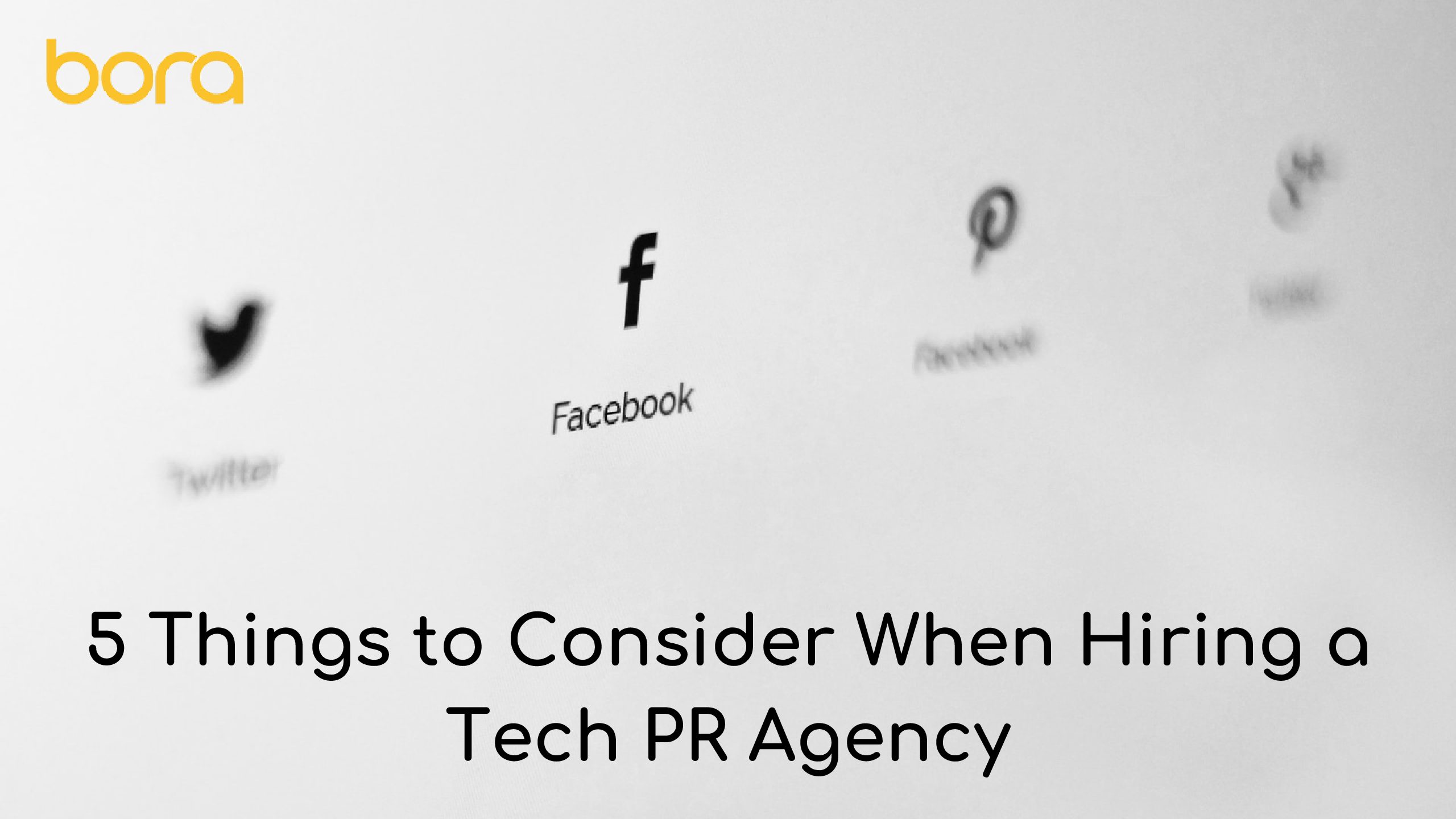When a decision has been made to engage with a Tech PR agency, settling on the right company is one thing, but knowing what to look for and what you want to achieve is crucial in the decision making process.
Selecting an agency can be a lengthy and difficult process. It requires thorough preparation and an investment of time and consideration. It is essential that you have a clear understanding of objectives, timescales and targets that you aim to achieve. Below are five key factors to consider when employing a Tech PR agency:
The RFP
A RFP, or brief, is the most crucial part of the hiring process. If a PR manager doesn’t know exactly what they want from an agency, they are not going to find the right one. Similarly, the RFP gives the agency an opportunity to come up with strategic recommendations and demonstrate why they think they are right for you.
It will enable you to establish whether the proposed agencies are capable of meeting your demands. It also gives the agency the opportunity to view your requirements and address whether they still feel they are suitable to manage you as a client.
A well thought RFP should include: an overview of the business and its position in the market, including strategy (where is the business going and what parts of the business need particular PR support), any issues with previous PR efforts, why the company is looking for an agency / to replace the existing agency, how internal processes work and how the agency will be expected to work with the business.
It’s also crucial that the company looking for an agency knows how it is going to evaluate the pitches/proposals. What are the most important criteria and how will they be weighted? This can be strategic thinking, creativity, media contacts, experience etc. Also, consider who is going to decide which agency will be selected? If the company doesn’t think about all these things up front then any pitching process will be a waste of time.
The Pitch
Following submission of a brief to your agency shortlist you should then be in a position to begin the pitch process.
How well the agency responds to the RFP will allow you to select those agencies you would like to hear pitch. It should be clear from their responses how well the team will address your business issues and whether they understand what is required of them.
When calling in agencies to present a pitch it is important that the team pitching for the business is the same team that will be working on your account if selected. This will allow you to ascertain whether you can trust in the team and their experience, and will give you a chance to get a feel for how the team work and the chemistry between you and them.
The relationship with you and the agency is vital, as you need to know that they will be responsive and listen to your ideas, and similarly, open to discussion in presenting their own ideas. You should then establish if they are flexible in adjusting their ideas/budget. It’s no good if you have a small budget but your agency only suggests big, expensive ideas. Will they be proactive and creative in maximising your budget?
This will allow you to judge the agencies understanding of your industry and the objectives set out in the brief. The pitch will also allow you to get a good feel for the team’s experience and successes in your field.
A good tech agency will then help you develop a strategy that focuses on your company’s strengths and differentiators and bring creative ideas to the table.
Experience
Tech PR is a specialist sector, and thus requires a specialist tech agency with vast experience and knowledge of the market. Comparable tech PR experience, with proven results is a good way of assessing an agency. With experience, a tech agency will be familiar with your target media and the channels to market your products. They should be able to answer basic, fundamental questions about your company and its offering.
The agency will be representing your company in front of your target media and analysts. Ensuring they understand the products and services you provide, along with having a good grasp of the company dynamics is a good way of judging them against competitive agencies and enabling you to establish whether they are the right fit for your company.
If they have a strong track record and valuable experience they should be able to provide case studies and testimonials, and show results from previous campaigns. This will leave you safe in the knowledge that they are capable of representing your company.
Contacts
Strong relationships form the basis for all effective PR. Whilst it may seem an obvious point to make, and all agencies will have some media relations, a strong understanding of the media in your sector is crucial. In a specialist sector such is technology, a good agency should know the target media inside and out, and be able to differentiate the relevance of each publication to you as a client.
The agency should have a good rapport with all the key press in your area, and as a representative of your company, the agency should know who to approach and with what stories, campaigns etc. If an agency does not have the right contacts or consistently approaches a journalist with inappropriate content for their publication, there is a chance that the agency could leave your company in bad light and risk losing opportunities for future coverage and comment.
Budget
After all the above considerations, the selection process will of course boil down to budget and ensuring you get the right price. Whilst all the above is essential, you also need to be able to afford the agency and your budget will be a deciding factor in choosing the right PR firm.
Typically, agencies will work on a monthly retainer basis which is adjusted to suit the scope and level of work involved. Others charge hourly and daily rates, some even pay on a target driven basis.
You must take into consideration the size of the agency and their existing clients as this will of course have an impact on their pricing. For instance, a smaller boutique PR firm may well prove more cost efficient when compared with a larger agency working with larger brands. However, the larger brands traditionally have more to spend and it is easy to get left behind. Always consider whether you are the right fit for their agency and that you will feature as highly on their priorities as those high paying clients.
Take into consideration your objectives and what you want to achieve, you should be clear on targets and timescales, always keeping in mind a budget. Take this figure to the potential agency and work with them to establish what can be achieved at the rates proposed.
Good luck with your search!
By Paula Averley, Founder & Principal Consultant, Origin Communications PR Agency
Twitter @paverley or email paula@origincomms.com





